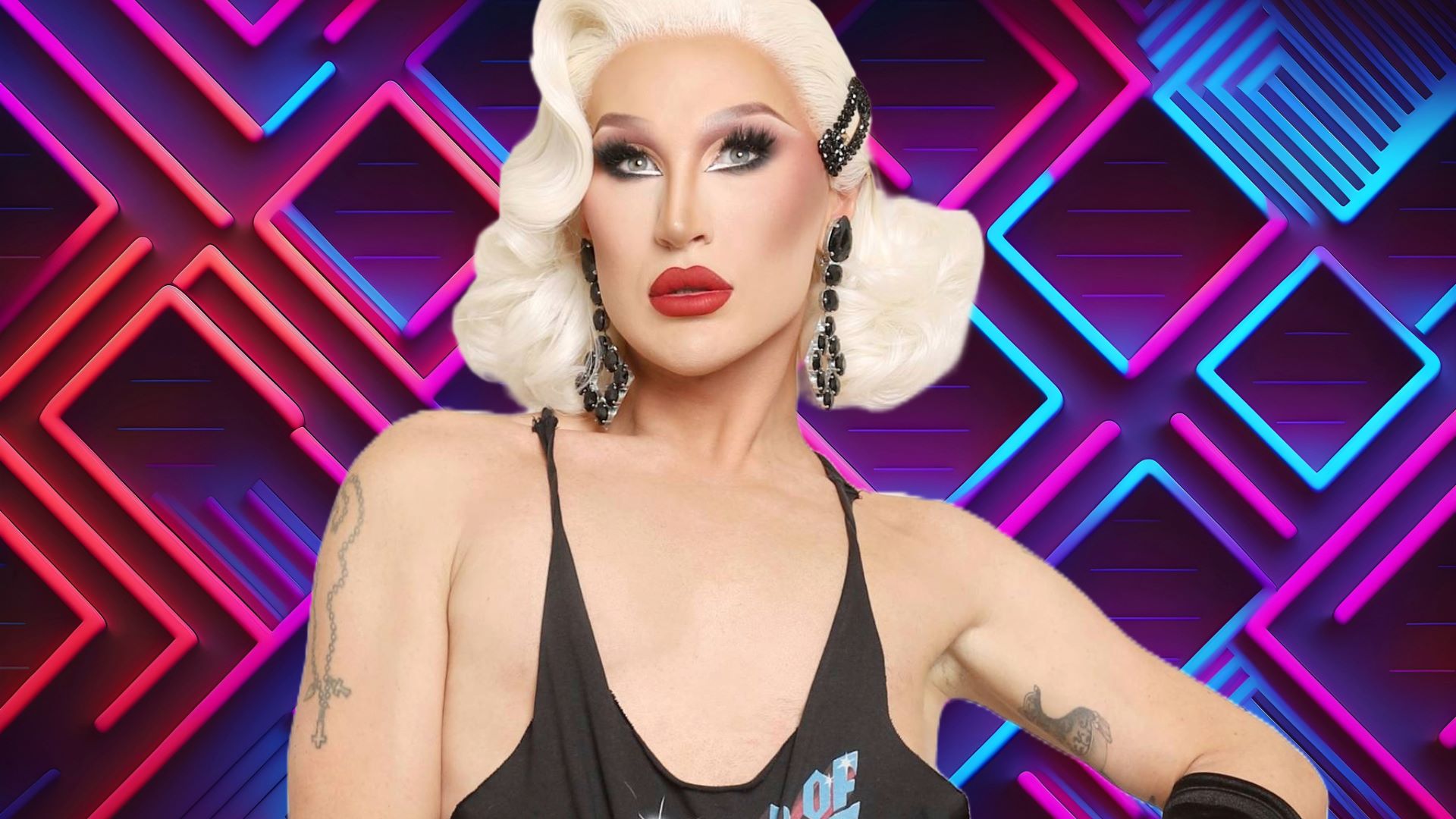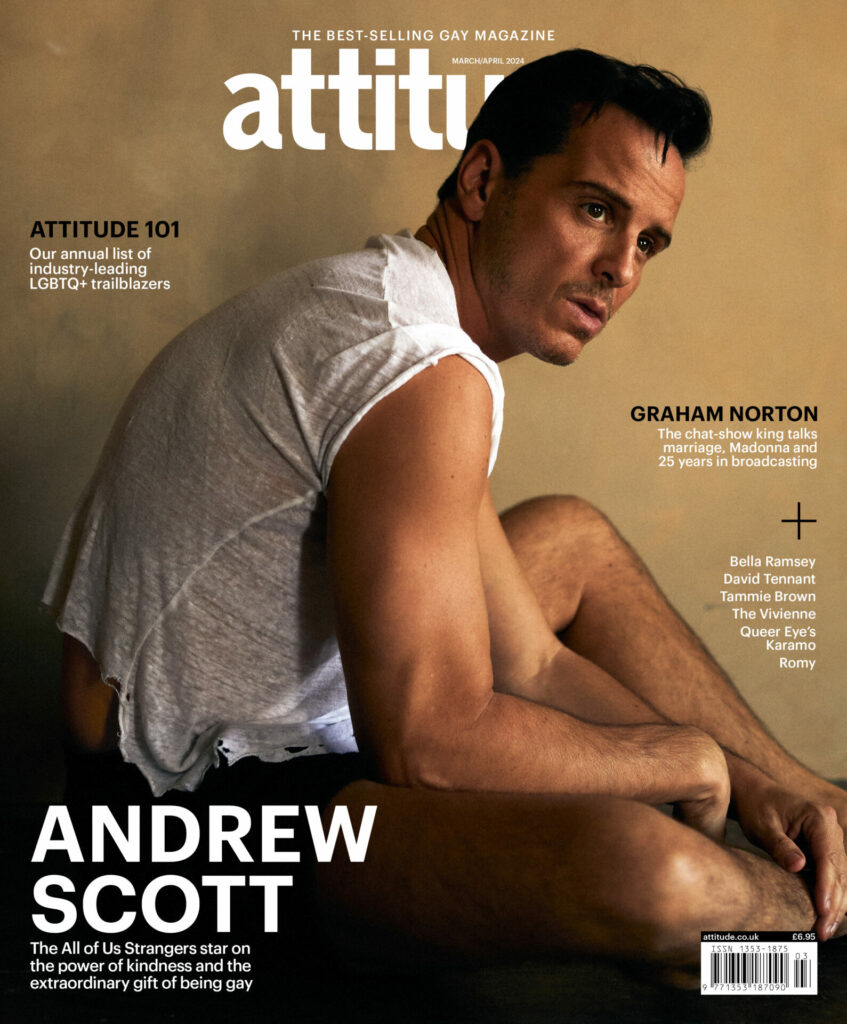The Vivienne on 15 years of Drag Race: ‘Visibility and representation are more crucial than ever’
Exclusive: "For the next generation, a world without drag is unthinkable," the star says
By The Vivienne

In February 2009, RuPaul’s Drag Race made its TV debut, introducing the world to an ebullient art form that was once confined to darkened nightclubs.
Fifteen years on, drag superstar The Vivienne, winner of series 1 of RuPaul’s Drag Race UK and former All Stars contestant, tells Attitude what the show has meant to her and the wider LGBTQ+ community.
When I first laid eyes on RuPaul’s Drag Race, I was living and working abroad in Turkey as a drag queen. Those were the gritty days of having to scour the internet for dodgy links, but I was willing to suffer the constant buffering and pixelated images just to get a glimpse of this fascinating new world. I knew of RuPaul, of course, but had little awareness of US drag culture. As I watched stunning queens like PorkChop and Morgan McMichaels compete with such dedication to glamorous perfection on this scrappy upstart of a show, I realised this was on a different level from the drag I thought I knew so much about.
My first encounter with drag growing up in North Wales was catching Lily Savage on TV. But when she disappeared from screens, so did drag’s mainstream presence in the UK. It wasn’t until years later that a video of Chad Michaels performing as Cher reintroduced me to the art form — she was so good that, at first, I wondered why Cher was belting out numbers in tiny gay bars between arena tours. I was spellbound and set about voraciously researching this creative realm. I reached out to Chad Michaels on Facebook at 14, and she became both a friend and mentor, later even performing at my wedding.
“When RuPaul’s Drag Race UK was announced in 2019, it was a sign that this once-tiny show from the fringes had really made it”
When RuPaul’s Drag Race UK was announced in 2019, it was a sign that this once-tiny show from the fringes had really made it — and of all the places that I thought it would pop up, I never dreamed it would be the BBC (shout-out to commissioning editor Ruby Kuraishe for making this happen!). Of course, I jumped at the chance to audition. I saw it as an opportunity to introduce the world I loved to a broader audience. Walking onto the Werq Room set felt surreal, like stepping into a dream. It was a moment where a once-subversive art form had transformed into a major cultural phenomenon.
Winning the first series of RuPaul’s Drag Race UK was a life-changing experience in itself, but appearing on All Stars took things even further. It opened doors to new creative ventures such as acting and presenting. Each pinch-me moment, like rubbing shoulders with celebrities like Whoopi Goldberg and Cameron Diaz, reinforced the show’s role in bringing drag and outsider art into the mainstream.
“The battle for acceptance and representation is ongoing”
That said, the battle for acceptance and representation is ongoing. In a world where drag storytimes and classroom diversity are under attack, the importance of visibility and representation is more crucial than ever. That’s why the show’s powerful messages about supporting our community resonate deeply with so many, highlighting the need for visibility in combating societal prejudices. Despite the glamour and glitter, drag remains a potent political statement. Its existence challenges traditional norms and continues to encounter opposition. But for the next generation, a world without drag is unthinkable.
RuPaul’s Drag Race has evolved from its humble beginnings to become a cultural cornerstone. Its influence is evident in everyday language, even among those who have never watched an episode. The show has been a gateway for many drag artists, offering a platform that was previously unimaginable. Yet, there’s still work to be done in bringing drag fully into the mainstream. I dream of a future where drag takes centre stage in more forms of media, where drag queens echo the success of icons like Lily Savage, where we’re the hosts of TV shows, not just the guests. It’s time for a drag prime minister!
“The path to total inclusivity within society still lies ahead”
Over the past 15 years, RuPaul’s Drag Race has evolved from its initial, grainy days into a polished, influential cultural phenomenon, mirroring society’s growing acceptance of drag and the LGBTQ+ community. Yet, its journey also reflects the ongoing struggle for complete acceptance, reminding us that while massive strides have been made, the path to total inclusivity within society still lies ahead.
Until then, the vibrant, defiant voices rising from nightclubs, ballrooms and bedrooms everywhere offer hope that future generations will inherit a world that’s more embracing of vibrant self-expression, as we witness the bold and glittering horizons RuPaul’s Drag Race continues strutting towards.
As told to Dale Fox.
The Vivienne will be starring in the upcoming An Evening with The Vivienne UK tour this May. Tickets are available here.
This feature appears in issue 357 of Attitude magazine, available alongside 15 years of back issues on the free Attitude app.

